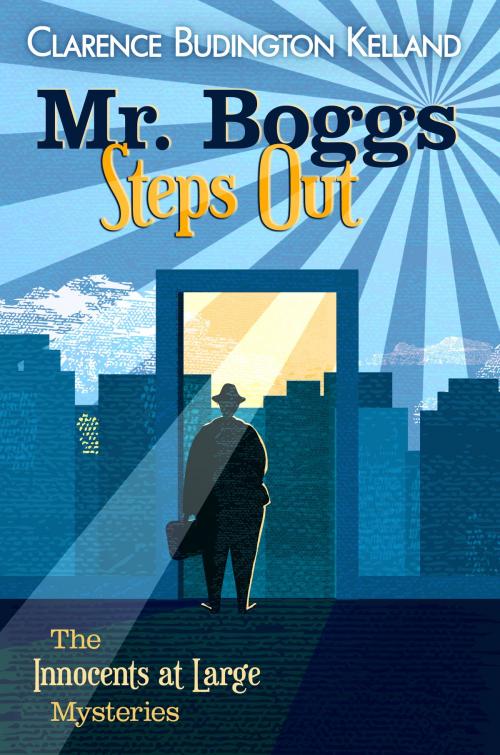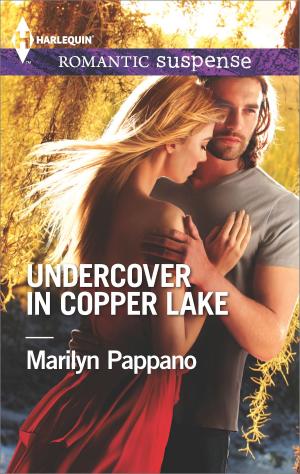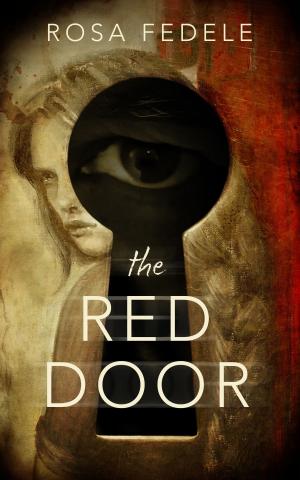Mr. Boggs Steps Out
Fiction & Literature, Movie & Television Tie-Ins, Mystery & Suspense, Cozy Mysteries, Romance, Romantic Suspense| Author: | Clarence Budington Kelland | ISBN: | 1230002378831 |
| Publisher: | Digital Parchment Press | Publication: | June 15, 2018 |
| Imprint: | Language: | English |
| Author: | Clarence Budington Kelland |
| ISBN: | 1230002378831 |
| Publisher: | Digital Parchment Press |
| Publication: | June 15, 2018 |
| Imprint: | |
| Language: | English |
UBERGEEK OLIVER BOGGS FINDS HIMSELF IN A PICKLE AND OVER A BARREL - IN LOVE, MURDER AND LAUGHS!
This slightly pixilated romantic suspense novel from the Golden Age of Mystery is sure to delight fans of the signature silver screen screwball comedies of the era (in fact, it was made into one in 1938, not long after it was published). This first ever U.S. book edition, from the author of Mr. Deeds Goes to Town, contains a Filmography, plus posters and stills from the hit move.
Statistics-obsessed researcher Oliver Boggs wins $1,500 (in 1936 $) in a movie theater contest when he correctly guesses the number of beans in a jar. Although Oliver is a timid geek, his older colleague, Mr. Jenkins, advises him to use the money to quit his job and seek romance and adventure. Oliver's quest takes him to Peckham Falls, a small upstate New York town, in which an idle barrel factory is for sale. Despite the warnings of some of the local citizens about the factory, Oliver buys it for $400. Then he encounters the factory's nerdy young secretary, who knows how to run the factory profitably and has been saving every penny she earns to buy the factory and run it right. Now Oliver has snatched that dream right out from under her. Some say when two geeks meet they hate each other, for Oleander that goes double where Oliver is concerned – and sparks fly.
But, after a while Oliver's head full of facts and naïve optimism have stolen Oleander's heart. Realizing how inexperienced and unworldly Oliver is, she decides to stay and help him run the factory. Oliver may know all the facts, but not the facts of life, and Oleander knows she has everything he needs – in the office and the future bedroom.
Then, just as soon as Oleander decides Oliver is the man for her, Oliver meets Irene Ross, Peckham Falls' most glamorous and wealthiest debutant – and decides she is the woman for him. Which does not sit so well with Oleander.
Oliver supremely confident due to his vast collection of facts, convinces the unemployed workers to go to work for him, promising he will pay them as soon as he convinces Irene's father, local pickle plant millionaire Morton P. Ross, to buy his barrels. But he soon discovers putting across the idea of buying locally sourced barrels to Ross is nothing like the shooting fish in a barrel he imagined.
And then…
But read it yourself, and if this dizzy, romantic comedy and attempted-murder (of Morton P. Ross, naturally) mystery does make milk come out your nose, we'll be surprised. We are still wiping it off our faces.
Clarence Budington Kelland was author of nearly 100 novels of mystery and romantic suspense, had enough careers for several men: attorney, reporter, manufacturer of clothespins, director of a major newspaper group, and more. Kelland became best known as a fiction writer, penning some 100 novels, and selling them as serials to the biggest and highest paying magazines of the time—like the Saturday Evening Post, The American Magazine, Colliers, and Cosmopolitan. Many were immortalized on film, of which the romantic suspense comedy and Oscar-winner, Mr. Deeds Goes to Town, is undoubtedly the most famous. Kelland appeared alongside Agatha Christie, Rex Stout and Erle Stanley Gardner in the same magazines, but was the most popular of the four. The New York Times described Kelland’s novels as “lively stories, designed to prick the jaded palate, that keep readers pleasantly entertained” and noted that “Kelland demonstrates the emotions of his lovers with a psychological penetration.” Kirkus Reviews called his novels “Bright and breezy, with plus appeal for murder-mystery addicts.” His magazine publishers kept besieging him for more novels because every time they serialized one of them (typically in 6-8 installments), circulation shot upward. Kelland obliged, and produced far more each year than his publisher (Harper and Row) could keep up with, leaving more than three dozen unpublished in book form when he died. His inimitable characters, trademark dialogue and deftly plotted stories, according to Harper, “made him an American tradition and won him more loyal, devoted readers than almost any other living author.” Kelland, as ever self-depreciating, simply described himself as “the best second-rate writer in the world.” His legions of fans, old and new, would likely disagree. There was nothing second-rate about his work.
UBERGEEK OLIVER BOGGS FINDS HIMSELF IN A PICKLE AND OVER A BARREL - IN LOVE, MURDER AND LAUGHS!
This slightly pixilated romantic suspense novel from the Golden Age of Mystery is sure to delight fans of the signature silver screen screwball comedies of the era (in fact, it was made into one in 1938, not long after it was published). This first ever U.S. book edition, from the author of Mr. Deeds Goes to Town, contains a Filmography, plus posters and stills from the hit move.
Statistics-obsessed researcher Oliver Boggs wins $1,500 (in 1936 $) in a movie theater contest when he correctly guesses the number of beans in a jar. Although Oliver is a timid geek, his older colleague, Mr. Jenkins, advises him to use the money to quit his job and seek romance and adventure. Oliver's quest takes him to Peckham Falls, a small upstate New York town, in which an idle barrel factory is for sale. Despite the warnings of some of the local citizens about the factory, Oliver buys it for $400. Then he encounters the factory's nerdy young secretary, who knows how to run the factory profitably and has been saving every penny she earns to buy the factory and run it right. Now Oliver has snatched that dream right out from under her. Some say when two geeks meet they hate each other, for Oleander that goes double where Oliver is concerned – and sparks fly.
But, after a while Oliver's head full of facts and naïve optimism have stolen Oleander's heart. Realizing how inexperienced and unworldly Oliver is, she decides to stay and help him run the factory. Oliver may know all the facts, but not the facts of life, and Oleander knows she has everything he needs – in the office and the future bedroom.
Then, just as soon as Oleander decides Oliver is the man for her, Oliver meets Irene Ross, Peckham Falls' most glamorous and wealthiest debutant – and decides she is the woman for him. Which does not sit so well with Oleander.
Oliver supremely confident due to his vast collection of facts, convinces the unemployed workers to go to work for him, promising he will pay them as soon as he convinces Irene's father, local pickle plant millionaire Morton P. Ross, to buy his barrels. But he soon discovers putting across the idea of buying locally sourced barrels to Ross is nothing like the shooting fish in a barrel he imagined.
And then…
But read it yourself, and if this dizzy, romantic comedy and attempted-murder (of Morton P. Ross, naturally) mystery does make milk come out your nose, we'll be surprised. We are still wiping it off our faces.
Clarence Budington Kelland was author of nearly 100 novels of mystery and romantic suspense, had enough careers for several men: attorney, reporter, manufacturer of clothespins, director of a major newspaper group, and more. Kelland became best known as a fiction writer, penning some 100 novels, and selling them as serials to the biggest and highest paying magazines of the time—like the Saturday Evening Post, The American Magazine, Colliers, and Cosmopolitan. Many were immortalized on film, of which the romantic suspense comedy and Oscar-winner, Mr. Deeds Goes to Town, is undoubtedly the most famous. Kelland appeared alongside Agatha Christie, Rex Stout and Erle Stanley Gardner in the same magazines, but was the most popular of the four. The New York Times described Kelland’s novels as “lively stories, designed to prick the jaded palate, that keep readers pleasantly entertained” and noted that “Kelland demonstrates the emotions of his lovers with a psychological penetration.” Kirkus Reviews called his novels “Bright and breezy, with plus appeal for murder-mystery addicts.” His magazine publishers kept besieging him for more novels because every time they serialized one of them (typically in 6-8 installments), circulation shot upward. Kelland obliged, and produced far more each year than his publisher (Harper and Row) could keep up with, leaving more than three dozen unpublished in book form when he died. His inimitable characters, trademark dialogue and deftly plotted stories, according to Harper, “made him an American tradition and won him more loyal, devoted readers than almost any other living author.” Kelland, as ever self-depreciating, simply described himself as “the best second-rate writer in the world.” His legions of fans, old and new, would likely disagree. There was nothing second-rate about his work.















